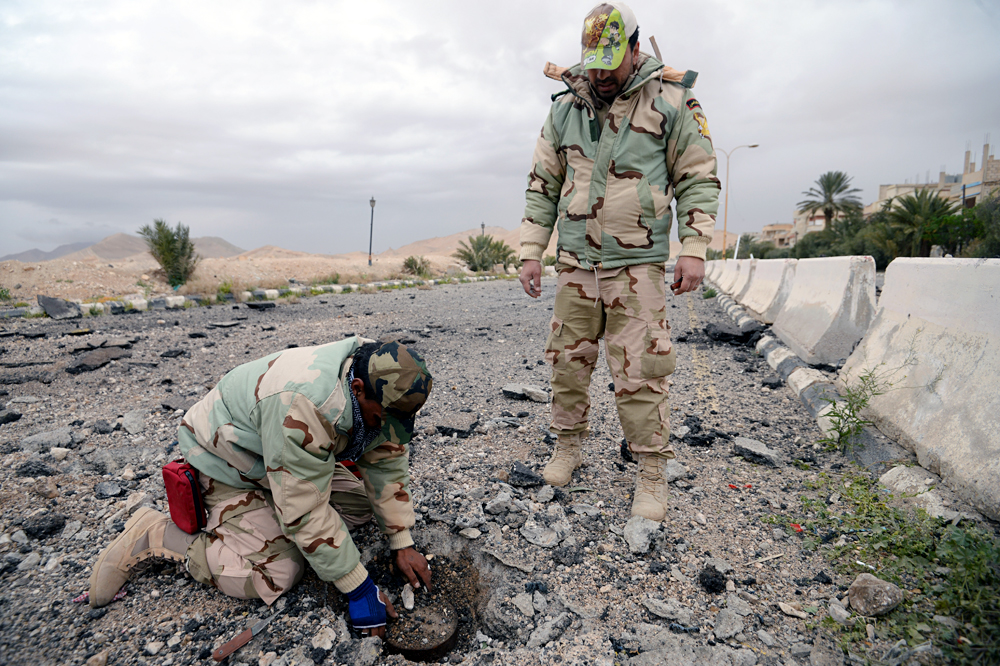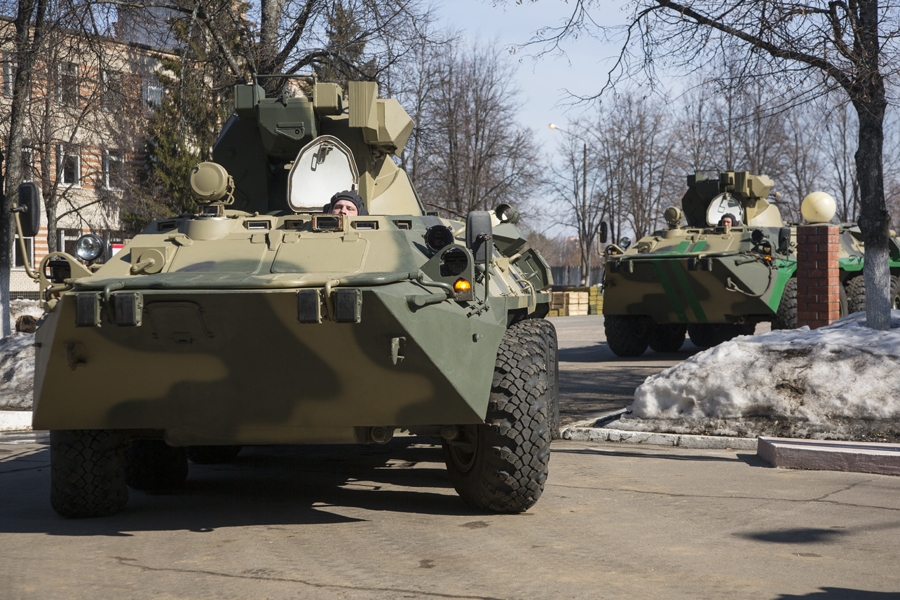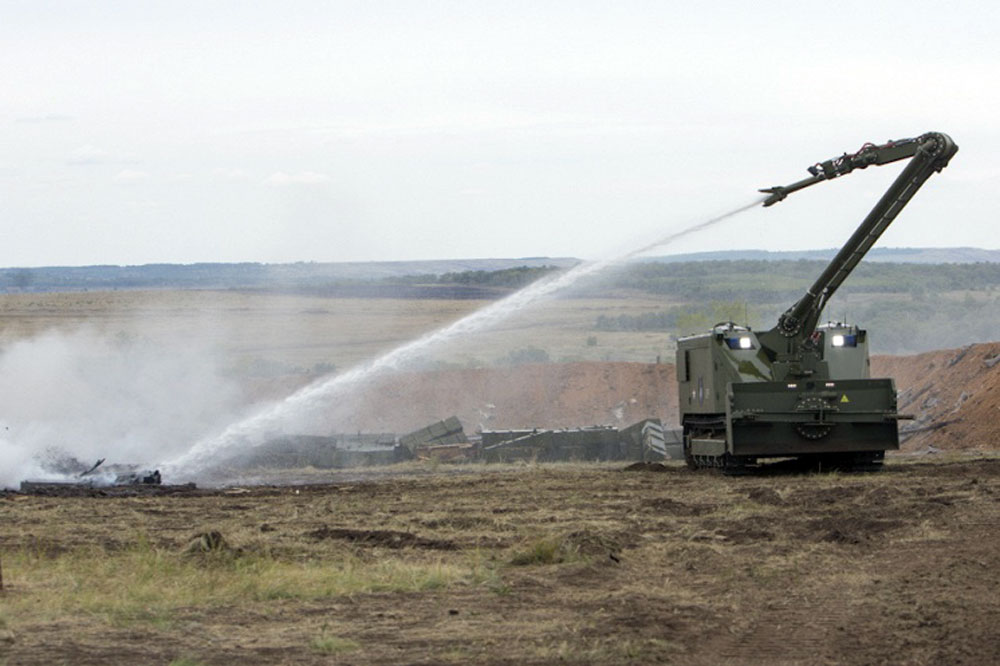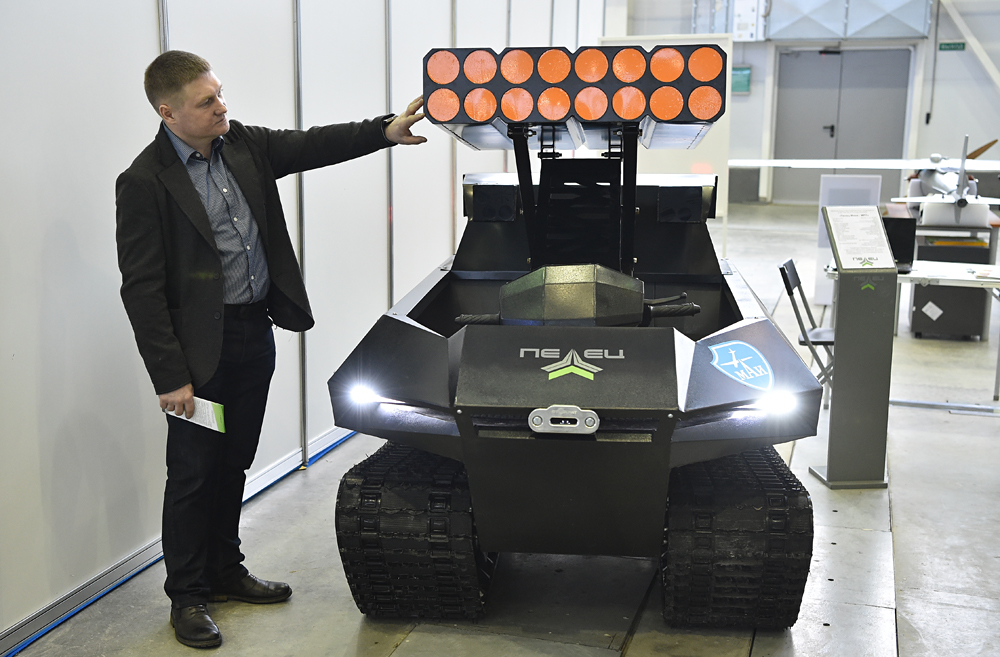Russian sappers heading to Syria to demine Palmyra

Palmyra was liberated from ISIS by the Syrian government army on March 27, 2016.
Valery Sharifulin/TASSChief of Staff Valery Gerasimov has announced the departure of Russian sappers to Syria, where they will join their Syrian counterparts in operations to clear Palmyra of mines laid by Islamic State (ISIS) militants.
The ancient city, a UNESCO World Heritage site, was captured by ISIS in May 2015 but was retaken by Syrian forces in late March 2016. Many of the city’s monuments were destroyed while it was in ISIS hands.
Syrian sappers are now attempting to remove mines from the city but have run into problems.
"We have already gained experience, but now we are facing a major problem – the clearance of houses and apartments, where the militants have left suicide bombers’ belts and explosives. We are awaiting assistance from our Russian colleagues to deal with it," the TASS news agency reported Lieutenant Qassen Shpib of the Syrian engineer troops as saying on April 1.
 Members of the Desert Falcons people's militia unit remove mines from a road in Palmyra. Source: Mikhail Voskresenskiy/RIA Novosti
Members of the Desert Falcons people's militia unit remove mines from a road in Palmyra. Source: Mikhail Voskresenskiy/RIA Novosti
The announcement of the departure of the first unit of Russian sappers and dog handlers came on March 28, while that concerning the second and third units was made on March 30.
The teams will depart for Syria from the Chkalovsky airport near Moscow.
Bombs cannot be detonated
The sapping operation will be carried out by specialists from the International Anti-Mine Center, established within the Russian Defense Ministry in 2014, and will be the center's first "foreign mission."
Earlier, the center's sappers worked in the Kerch Strait in the Black Sea, where they cleared the territory from WWII mines before the beginning of the construction of the bridge connecting the Russian mainland to Crimea.
 The departure of Russian sappers to Syria from Moscow. Source: Mil.ru
The departure of Russian sappers to Syria from Moscow. Source: Mil.ru
The complexity of the upcoming work is related primarily to the fact that the bombs that the sappers find will have to be disarmed and not destroyed, since any explosions may harm the ancient monuments standing in Palmyra.
In an interview with Gazeta.ru, military expert Oleg Valetsky, who demined territories in the former Yugoslavia, emphasized that sapping operations in urban conditions are much more difficult than in other places.
"It is more complicated because essentially in cities it is more difficult to work with a mine detector due to the metal's high level of contamination. Often a cable is used for managing it since the devices are located at a great depth and the mine detectors can miss them completely," said Valetsky.
He added that it will be particularly difficult in urban conditions to demine radio-guided bombs, for which it will be necessary to use special jammer blockers.
"Often radio-guided devices are used. If they are based on radio or mobile telephone, they can be blocked easily. But if they are based on codified devices, it is more difficult to block them," he said.
One robot instead of 20 sappers
A separate plane will transport robot sappers to Syria. The Russian engineer forces have several types of robots and mobile sapping systems. According to the media, the multifunctional Uran-6 systems are certain to be sent to Syria.
The Uran-6 is a remotely guided tracked armored vehicle with a video camera on its body that emits signals to the specialist at the base.
For putting out fires in demining conditions Russian sappers use the Uran-14 system, which moves about on tracks just like the Uran-6. The robot can work in high temperatures and threatening conditions involving uncleared mines, when there is a danger for firemen.
Accumulated experience
Russian military sappers have substantial experience in zones of armed conflict, including abroad. Besides the North Caucasus they have demined other hot spots such as combat territories in the former Yugoslavia.
Former Airborne Commander Colonel General Georgy Shpak told Gazeta.ru about a demining episode in which his son Oleg participated.
"In 1994 his platoon was stationed at one post in Yugoslavia and all around were minefields. And although there were flags prohibiting walking on the field, one soldier wanted to pick some apples."
"The soldier went onto the field and immediately there was an explosion that tore his foot off. My son, a lieutenant, threw him a cord that the wounded soldier tied to his hand. He was pulled out step by step, the same way he went in. The others shouted for him to pick up his foot. A car immediately took him to the hospital and today he still has his feet and dances," said Shpak.
First published in Russian in Gazeta.ru
Read more: More than 180 hectares need to be cleared of mines in Palmyra>>>
All rights reserved by Rossiyskaya Gazeta.
Subscribe
to our newsletter!
Get the week's best stories straight to your inbox

